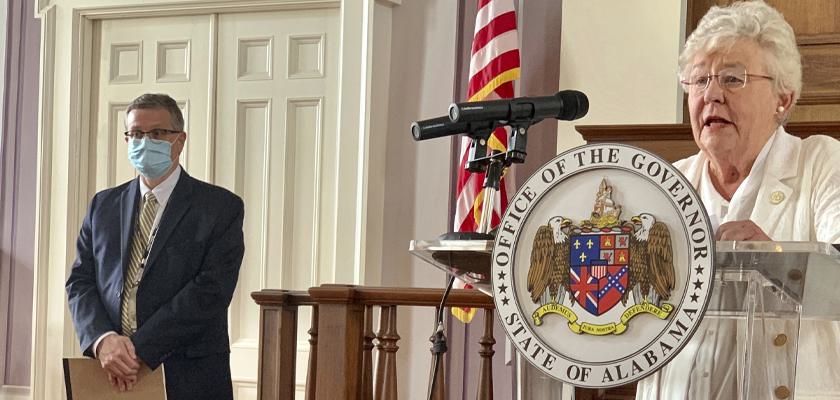One of the many lessons of the COVID-19 pandemic is that Alabama’s State Health Officer carries an extraordinary amount of power. That power, wielded by Dr. Scott Harris in the early months of the pandemic, had impacts well beyond healthcare, extending to businesses and the daily lives of every Alabamian.
Children were sent home from school, forced to rely on online learning to finish out the 2020 school year, and many fell behind. Many Alabamians were told to work from home to avoid spreading the virus. Businesses deemed “non-essential” by the State Health Officer were shut down for weeks and capacity was limited for longer. Some Alabama companies never reopened. Beaches were closed, hurting Alabama’s tourism industry during a portion of peak season.
Last week, State Sen. Sam Givhan (R-Huntsville) introduced a bill that would begin rolling back some powers belonging to the State Health Officer.
You may not realize that the powerful State Health Officer is not an elected position, nor does the governor or legislature have any input or veto power authority over who is selected. Rather, the State Health Officer is appointed by the State Committee of Public Health, comprised of 12 members from the Medical Association of the State of Alabama. The Committee also sets the qualifications for the position.
Alabama is the only state in the U.S. where the top public health official is neither elected nor appointed by an elected official.
Givhan’s Senate Bill 171 would give the appointment of the State Health Officer to the governor. The bill would also require any emergency health rule or order drafted by the State Health Officer to be approved by the governor.
Giving appointment power to the governor would mean that at least an elected official would bear some responsibility for the decisions made by the State Health Officer. Because the position is currently appointed by the state medical association, there is virtually no recourse for citizens or Alabama’s elected officials.
Requiring the governor to approve orders adds another measure of accountability, though that’s not to say a governor is likely to go against the recommendations of someone they hand-picked for the job. Still, it gives the governor a seat at the decision-making table.
Between March 6, 2020 and May 3, 2021, the Alabama State Health Officer issued 27 emergency orders/rules relating to the pandemic. Though Gov. Kay Ivey generally issued an accompanying state of emergency proclamation, there was nothing she could do to stop the health orders from taking effect.
Alabama may never face another situation like the COVID pandemic again, but we cannot count on that. Instead, we must learn from the situation, one of the lessons being the need to limit the power of the State Health Officer, providing more accountability to the position. Givhan’s bill is a first step, but the legislature should make stronger reforms, following at least 26 other states that took steps between March 2020 and September 2021 to permanently limit government’s authority to regulate public health.
In addition to being appointed by the governor, the State Health Officer should also require Alabama Senate confirmation. This would make the position not only accountable to the governor, but other elected officials as well. Some have even suggested that top health officials be elected, making them solely accountable to voters.
One argument against appointing health officials is that politics would influence decisions made about public health. But policy decisions always have consequences. As Dr. Jay Varma, a senior advisor for public health to New York City during the pandemic, wrote, decisions “can never be purely about science.” If one person is going to have the power to determine the tradeoffs between health vs. economic consequences of a decision, then they should at least be accountable to the person who appointed them or the citizens that elected them.
Lawmakers should also have more oversight authority when it comes to health orders, whether Alabama’s governor approves them or not. Orders should not be able to remain in place or continued indefinitely without approval from the legislature. There must be limitations.
Givhan’s bill provides needed reforms that would potentially curtail the powers of the State Health Officer. Stronger restrictions and oversight provisions should be added to ensure that it does that.
Justin Bogie serves as Fiscal and Budget Reporter for 1819 News. The views and opinions expressed here are those of the author and do not necessarily reflect the policy or position of 1819 News. To comment, please send an email with your name and contact information to: Commentary@1819News.com.










